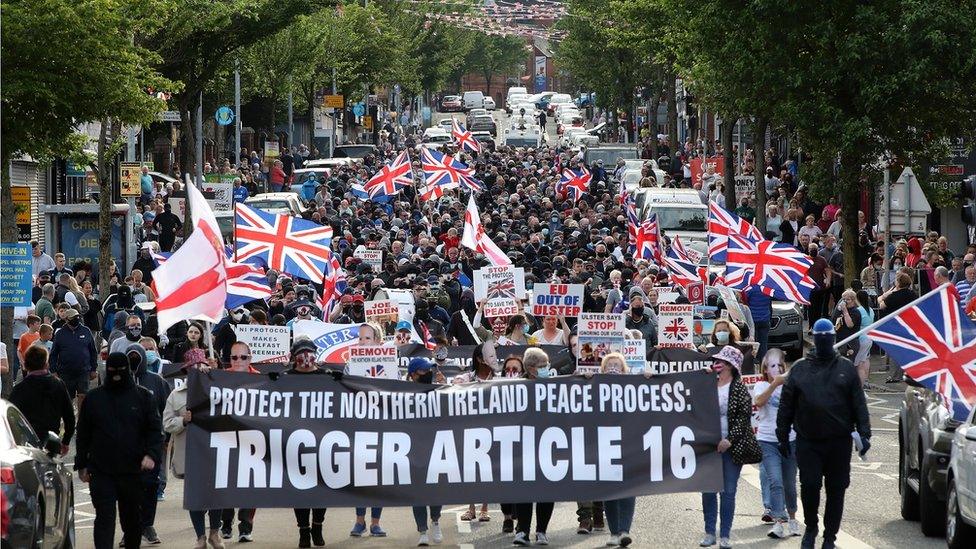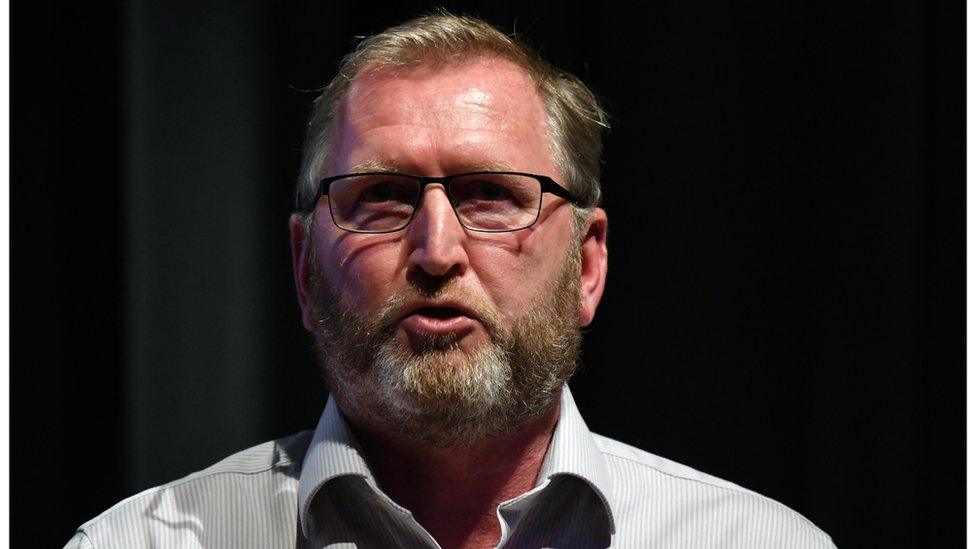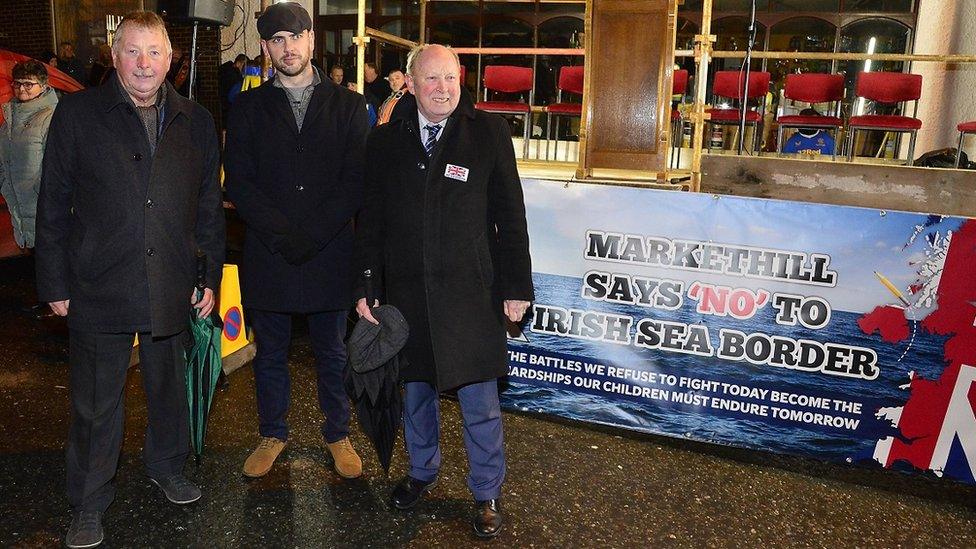NI Protocol: Paramilitaries probably involved in protests, says PSNI
- Published

Dozens of peaceful protests were held to express opposition to the Northern Ireland Protocol ahead of the Stormont election in May
Loyalist paramilitaries probably played a role in organising protest rallies against the Northern Ireland Protocol this year, a police commander has said.
Assistant Chief Constable Mark McEwan said the individuals were part of locally-formed "coalitions".
He was responding to questions from South Belfast MP Claire Hanna during a Westminster committee hearing.
The Northern Ireland Affairs Committee is taking evidence about the effects paramilitaries are having on society.
Ms Hanna of the SDLP asked him: "Obviously organising a rally is not a crime but are you aware of any individuals linked to paramilitary organisations who were involved in organising events billed as peaceful protests?"
Mr McEwan responded: "They were generally organised by what were formed as coalitions.
"There may be members of those coalitions who have links to paramilitary groups, absolutely.
"But that is not to say that the coalitions themselves are controlled by paramilitary groups or otherwise."
'Undermined'
Dozens of peaceful protests were held to express unionist and loyalist opposition to the Northern Ireland Protocol, particularly in the run-up to last May's Stormont assembly election.
None have taken place since the summer.
The protocol is the post-Brexit trading arrangement for Northern Ireland, which was agreed between the UK and the EU.
Special arrangements had to be put in place for Northern Ireland after Brexit because it had an EU land border with the Republic of Ireland.
The protocol allows goods to be transported across that border without the need for checks at that point.
Instead the goods are inspected whenever they arrive in Northern Ireland from other parts of the UK.
But unionist political parties argue that the protocol has undermined Northern Ireland's place within the UK by effectively creating a trade border in the Irish Sea.
Unionist politicians such as Democratic Unionist Party (DUP) leader Sir Jeffrey Donaldson and Traditional Unionist Voice (TUV) leader Jim Allister frequently addressed the protest rallies against the protocol.
'Police taking robust action'
Mr McEwan also told the committee that the Police Service of Northern Ireland (PSNI) does not negotiate with paramilitary figures who act as "gatekeepers" in some communities.
Alliance Party MP Stephen Farry said: "I once remember a new (police) commander coming in to an area and the first photograph which appeared in the local paper was him shaking the hand of the person who was widely known to be a leading paramilitary.
"That type of thing sends out a signal that those are the type of people the police are talking to.
"To be fair this is an issue across the public sector," said the North Down politician.
Mr McEwan replied: "I can't speak to the individual incident.
"Where people who have had former paramilitary connections are involved in constitutionally-formed groups, we do engage with them.
"They are often supported through various levels of government."
He went on to stress that the police take "robust" action against paramilitaries across the spectrum.
"We are fearless in how we go about pursuing them.
"The complexities of a post-conflict society in no way waiver us from our relentless pursuit of criminality."
Related topics
- Published28 March 2022

- Published19 February 2022

- Published11 June 2021

- Published2 February 2024
